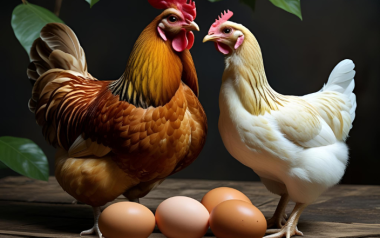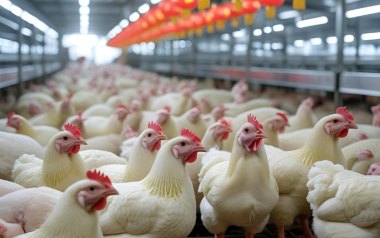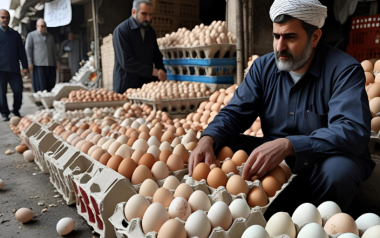12 Aug 2025
Vietnam chicken egg prices cool, market stabilizes
After a sharp spike, Vietnam's egg prices have stabilized, but experts warn of oversupply if restocking happens too fast.
Available in other languages:
Content available at:
Tiếng Việt (Vietnamese)
After a sharp spike in late July and early August 2025, chicken egg prices in Vietnam have cooled.
Rates are now closer to their real value, said Nguyen Thanh Son, Chairman of the Vietnam Poultry Association.
- Current price: USD 0.10/egg
- In the South:
- Silkie and Egyptian chicken eggs: USD 1.00-1.13/dozen
- Native chicken eggs: USD 0.96-1.04/dozen
- Peak period (late July): USD 0.12/egg
- Lowest price (8–9 months ago): USD 0.03 – USD 0.04/egg
- Average production cost: USD 0.07 -0.08/egg
- Current profit: around USD 0.025-0.033/egg, depending on the farm
Despite the price rebound, many farmers are still recovering from prolonged losses.
What drove the sudden price spike?
Vu Manh Hung, Chairman of Hung Nhon Group, attributed the surge to basic supply and demand dynamics.
Years of low prices led many farmers to reduce flock sizes or switch occupations, shrinking supply.
Meanwhile, the military conflict between Thailand and Cambodia disrupted Thai egg exports, prompting Cambodia to import more from Vietnam.
Domestic demand also rose after false rumors about ‘fake eggs’ were debunked, restoring consumer confidence.
Moreover, African swine fever shifted consumer preferences toward poultry meat and eggs, further driving prices upward.
Restocking risks loom
Although egg prices are currently favorable, experts warn against restocking too quickly. Oversupply could push prices below USD 0.08/egg within a few months, causing new losses.
Nguyen Thanh Son advised farmers to avoid chasing short-term market gains and instead plan carefully. Large farms and enterprises are already implementing long-term strategies to stabilize flock sizes, reduce risk, and ensure capital recovery.
Industry shifts and structural challenges
Vietnam’s poultry industry is undergoing a structural shift. Small-scale farmers are struggling to compete, while large enterprises, including foreign investors, are gaining ground.
Industrialization is also reducing available agricultural land, further impacting the number of poultry farms.








































